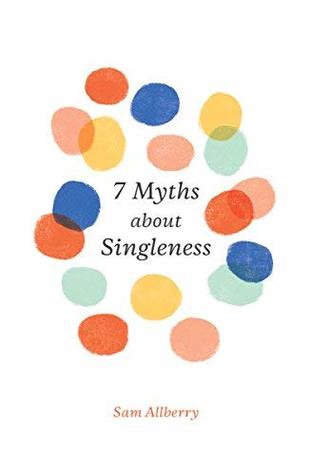More on this book
Community
Kindle Notes & Highlights
To be single is to refrain from any sexual behavior. If you’re single long term, as a Christian that means being sexually abstinent long term.
there are no equivalent contemporary notions today, so we can only borrow language from previous generations to describe it.
The most lengthy and thorough discussion of singleness comes in 1 Corinthians 7,
God’s word to singles about singleness is something you need to know about, whatever your stage of life or marital status.
Better to think carefully and biblically about singleness now rather than later.
We’re a body. We belong to one another. What happens to part of us therefore affects all. If some struggle, it hurts us all.
But it shows me that as a single person, I have a stake in the health of the marriages in my church family.
And those who are married have a stake in the health of my singleness.
In wider culture, singleness (as we have already noted) is not a problem in and of itself. But celibacy is.
Jesus is saying that it is all too possible to be defiled, to be spiritually unacceptable to God.
But Jesus shows them that defilement is not primarily something external to us but internal.
It is not outside of us and to be avoided, but inside of us and to be acknowledged—it comes out of the heart.
Jesus doesn’t take the Old Testament law and go easy on his hearers; he dials it up for them.
This, Jesus shows us, is the union that alone enables two people to become “one flesh.” This is not something designed to be undone or reversed.
For those wanting to follow him, being unmarried very much involves singleness with sexual abstinence.
We also need to remember that Jesus made himself a eunuch for the sake of the kingdom. Jesus willingly became fully human for us. He willingly became a male.
Jesus was not calling others to a standard he was not willing to embrace himself.
He is the most complete and fully human person who ever lived. So his not being married is not incidental. It shows us that none of these things—marriage, romantic fulfillment, sexual experience—is intrinsic to being a full human being. The moment we say otherwise, the moment we claim a life of celibacy to be dehumanizing, we are implying that Jesus himself is only subhuman.
The assumption was that we can’t really live without romantic hope, that a life without any potential for romantic fulfillment is unfair to demand and unbearable to experience.
Paul is not saying that singleness is spiritual and marriage unspiritual. Nor is he saying that singleness is easy but marriage is hard. No, the contrast is between complexity and simplicity. Married life is more complicated; singleness is more straightforward.
Paul is no doubt thinking of some of the ways he has seen this freedom in his own life and ministry.
A significant temptation for many singles, especially if we live on our own, is to become self-centered. I can easily become anxious about “the things of me.”
We need to remind ourselves, daily, that our singleness is not for us but for the Lord. It’s not for our concerns, but for his.
It is simply to say that we are wrong to assume singleness is too hard.
This process in Judges shows us that we really need someone to come who (1) is not deeply flawed, and (2) death will not take from us.
He speaks of singleness not just as being bearable but as being a gift from God:
While singleness is good, it is not God’s purpose for everyone to remain single. Each has his or her own gift, meaning that each is either single (like Paul) or else married.
Marriage is a gift, and so too is singleness.
God is no fool. He is not the uncle who still thinks you’re twelve when you’re well into your thirties and sends you childish gifts. He is the Creator who made you and knows you. He is the One who orders all things and does so for your good.
He is one. He is perfectly integrated in all he is and says and does. His Word is never contradictory.
But it serves to remind us that, even in the midst of those challenges, we can taste something of the goodness of God.
Not everyone struggling to exercise self-control in this area will necessarily be able to find someone appropriate to marry.
The presence of significant sexual desires does not justify disobeying other biblical commands about, say, not marrying someone of the same sex or someone who does not share our faith in Christ.
Paul’s point is that you should turn to marriage to fulfill your passions not because he thinks that’s all marriage is good for, but because marriage is the only godly place for such passions to be fulfilled.
To call singleness itself a “threat to marriage” is to speak about it in a profoundly unbiblical way that I am sure would astonish Paul.
The issue is our heart and what is motivating us.
Singleness, like marriage, is a good thing. It needs to be received appropriately and held in a biblical perspective, as does marriage.
When we honor it, as God intends us to, as a good gift, then we won’t presume it needs some spiritual superpower to make it bearable.
But the choice between marriage and celibacy is not the choice between intimacy and loneliness, or at least it shouldn’t be. We can manage without sex.


